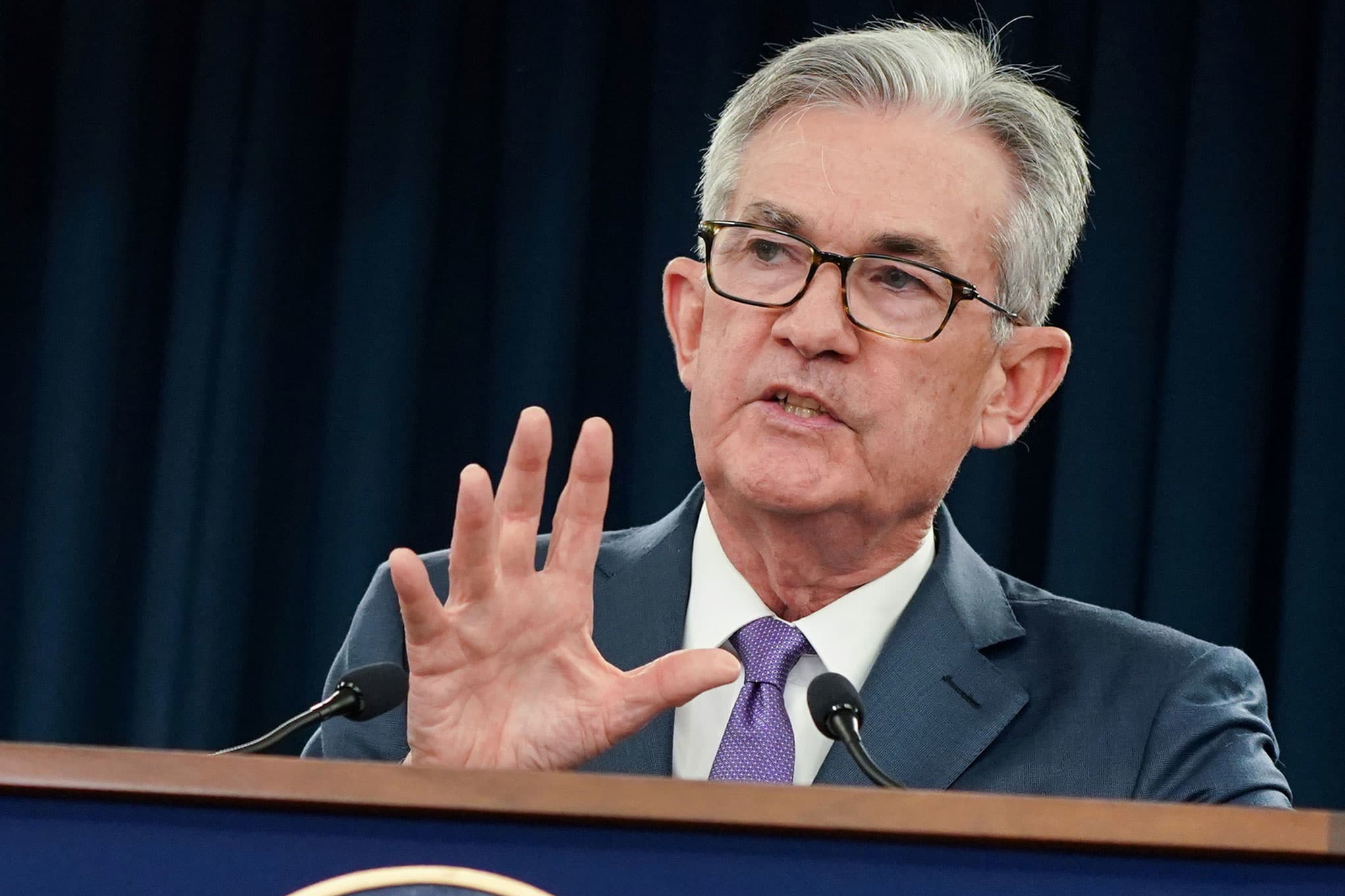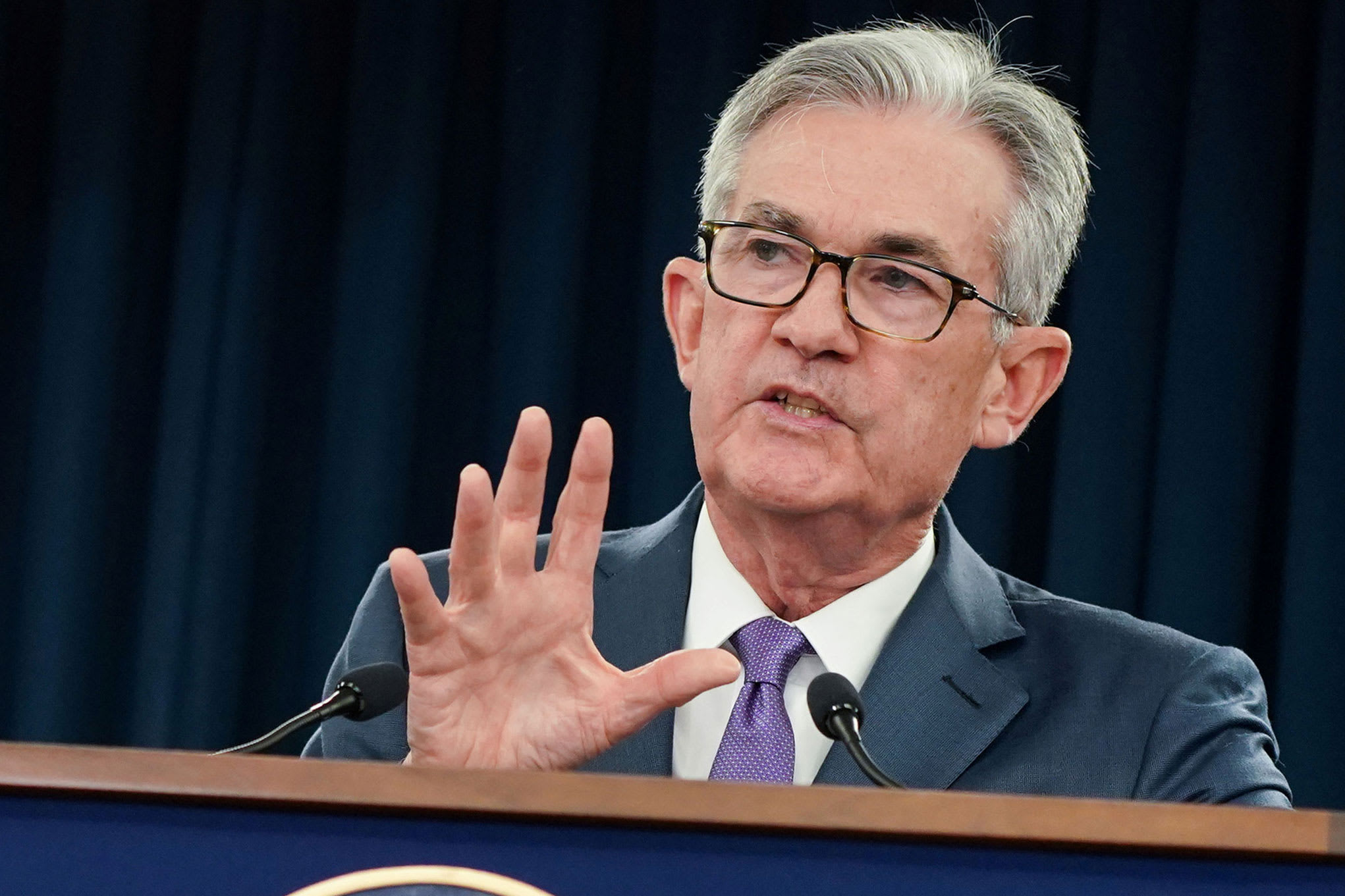
Federal Reserve Chair Jerome Powell holds a news conference following the Federal Reserve’s two-day Federal Open Market Committee Meeting in Washington, July 31, 2019.
Sarah Silbiger | Reuters
The Federal Reserve is expected to cut interest rates by a quarter point on Wednesday, but what it says about its future plans will determine whether stocks continue their run at record highs.
Tensions around this month’s rates meeting decision are high. Fed Chairman Jerome Powell faces dissent from within the Fed board from some members who don’t believe the economy is weak enough to warrant cutting rates. Two members opposed the last rate cut, and even more could oppose this one.
The Fed is also under pressure from financial markets that threw a tantrum earlier this summer on concern the Fed was moving too slowly to stave off a recession. On top of that, the Fed faces an unprecedented level of criticism from the White House, with President Donald Trump repeatedly criticizing the Fed board and Powell, himself, for not cutting interest rates fast enough. This week, the president went so far as to call Fed officials “boneheads” and demanded they take the fed funds rate to zero or even a negative level.
Against this backdrop, the stock market is flirting with new highs, as the Fed joins other central banks to ease policy, in the face of a global economic slowdown. Stocks were higher for the week and on Friday trading less than one percent below July’s all-time highs in the Dow and S&P 500. The Dow ended the week 1.6% higher at 27,219, while the S&P 500 was up just about 1% at 3,007, 21 points away from its all-time high.
The market was boosted by signs there could be progress in trade negotiations between the U.S. and China, as each side held off on some new tariffs, ahead of formal talks in October.
“It’s been good news all around for the markets this week. You have thawing of trade tensions. You have more central bank easing, and you have Goldilocks economic data. Investors are thrilled…and that’s why you have markets just fractionally below all-time highs,” said Michael Arone, chief investment strategist at State Street Global Advisors.
Riding on the Fed
The Fed stands to disappoint markets if it does not explicitly promise more easing. The Fed could do that in the quarterly projection of interest rate forecasts, which will be issued with its economic projections after the meeting. Fed officials include forecasts for growth and inflation, besides interest rates, which appear in a chart known as the “dot plot.”.
“The question is will the Fed signal a willingness to keep going with rate cuts, or will they suggest this mid-cycle adjustment is nearing its end. My view is they’re not going to back themselves into a corner, and they’re going to give themselves plenty of room to cut again at some point,” Arone said. “That’s going to be the biggest risk right now. The markets are pricing in a number of rate cuts in the next few quarters and will the Fed deliver on that…That will be a friction point.”
U.S. data in the past week has been largely better-than-expected, with August’s retail sales up 0.4%, continuing a stronger trend, on the back of improved auto sales. The dilemma for the Fed, however, could be the fact that both producer and consumer level inflation picked up in August, with core CPI reaching 2.4%, its highest year over year growth pace since 2008. That is well above the Fed’s 2% target, but the Fed prefers to watch PCE inflation, which is running at about 1.6%.
On the calendar in the coming week is Empire State manufacturing Monday; industrial production Tuesday; housing starts Wednesday, and existing home sales and the Philadelphia Fed survey Thursday. But it’s the Fed that will resonate more with markets.
“We they think they’ll cut 25 [basis points]. We think it will be a pretty even split between half the committee looking for one more cut and the rest looking for no action,” said Kevin Cummins, senior economist at NatWest Markets. The Fed shaved the fed funds target rate range by a quarter point, to 2.00 to 2.25% in July.
Some strategists haves said the more dissents, the more it would add to increased market volatility, since the Fed outlook becomes much more uncertain if Fed officials are not more uniformly supporting policy actions.
Cummins said he expects the Fed’s post-meeting statement to reflect slightly softer economic activity in July, and it will likely mentioning that the labor market may be just “solid,” instead of “strong” and that job gains have moderated.
“That leaves the door open for more [rate cuts]. The dot plot shows another cut by the end of the year. You could make the case they’ll pause in October if things remain the same,” he said, adding they could also resume in December.
Calmer markets
The Fed faces much calmer markets than it would have in August, when trade tensions increased with Trump’s tweet threatening more tariffs on China. Stocks have been rising as bond yields come off August lows, and traders are now pricing in a 25 basis point cut this week and one more for this year and another next year.
As Treasury yields fell to record and multi-year lows in August, the futures market had priced as many as three more Fed rate cuts fort his year. Since then the 10-year yield, which moves opposite price, has rebounded to 1.90%— more than 45 basis points off its low.
The more than 30 basis points move in the 10-year yield in the past week, was the largest weekly move since November, 2016.
Trade developments could also move markets in the coming week, just as they have in the past week. Analyst say the market is most vulnerable if there’s a negative surprise. Trump’s tweet on trade Aug. 1, threatening more tariffs on China, created a new round of turbulence in markets.
“It’s kind of ironic. Without the U.S. China trade conflict, the Fed wouldn’t be cutting rates at all, and yet President Trump continues to bash them to cut rates,” Arone said.
Arone said the bigger overriding driver for the market is in fact the trade negotiations, and he said the markets may be too optimistic in expectations for a trade deal.
“There’s an inherent kind of risk to the markets if in fact, tensions escalate again,” he said.
What to Watch
Monday
8:30 a.m. Empire State manufacturing
Tuesday
Fed begins two-day meeting
8:30 a.m. Business leaders’ survey
9:15 a.m. Industrial production
9:15 a.m. Capacity utilization
10:00 a.m. NAHB survey
4:00 p.m. TIC data
Wednesday
8:30 a.m. Housing starts
2:00 p.m. Fed decision
2:30 p.m. Fed’s Powell holds press conference
Thursday
8:30 a.m. Initial claims
8:30 a.m. Philadelphia manufacturing survey
8:30 a.m. Current account
10:00 a.m. Existing home sales
10:00 a.m. Leading index
Friday
11:20 a.m. Boston Fed President Eric Rosengren at Stern School of Business conference
2:00 p.m. Dallas Fed President Robert Kaplan at Community Forum hosted by the Federal Reserve Bank


 Signal2forex.com - Best Forex robots and signals
Signal2forex.com - Best Forex robots and signals




